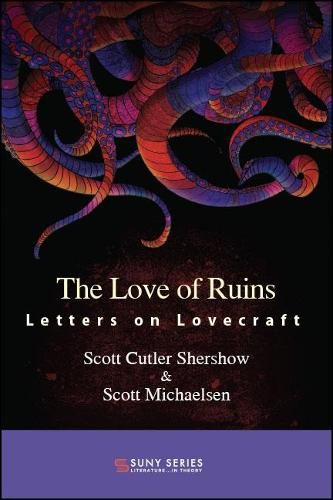Readings Newsletter
Become a Readings Member to make your shopping experience even easier.
Sign in or sign up for free!
You’re not far away from qualifying for FREE standard shipping within Australia
You’ve qualified for FREE standard shipping within Australia
The cart is loading…






Today, H. P. Lovecraft is both more popular and controversial than ever: the influence of his Cthulhu mythos is everywhere in popular culture, his cosmic pessimism has reemerged as a major theme in contemporary philosophy, and his racism continues to spark controversy in the media. The Love of Ruins takes a fresh look at a figure widely acknowledged as the father of modern horror or weird fiction. In these pages, Lovecraft emerges not as the atheist and nihilist he is often claimed to be, but as a kind of psychonaut and mystic whose stories, through their own imaginative rigor, expose the intellectual bankruptcy of their author’s racism. The Love of Ruins is itself written in the form of letters, in order to do homage to Lovecraft’s love of the form of the personal letter (he wrote more than 100,000), and to emulate Lovecraft’s lifetime practice of thinking-as-corresponding.
$9.00 standard shipping within Australia
FREE standard shipping within Australia for orders over $100.00
Express & International shipping calculated at checkout
Today, H. P. Lovecraft is both more popular and controversial than ever: the influence of his Cthulhu mythos is everywhere in popular culture, his cosmic pessimism has reemerged as a major theme in contemporary philosophy, and his racism continues to spark controversy in the media. The Love of Ruins takes a fresh look at a figure widely acknowledged as the father of modern horror or weird fiction. In these pages, Lovecraft emerges not as the atheist and nihilist he is often claimed to be, but as a kind of psychonaut and mystic whose stories, through their own imaginative rigor, expose the intellectual bankruptcy of their author’s racism. The Love of Ruins is itself written in the form of letters, in order to do homage to Lovecraft’s love of the form of the personal letter (he wrote more than 100,000), and to emulate Lovecraft’s lifetime practice of thinking-as-corresponding.